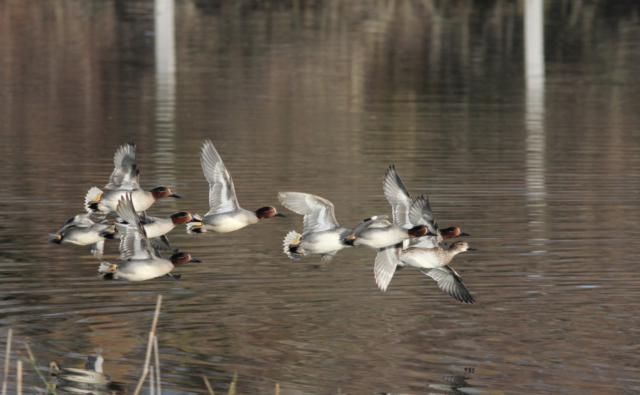Tour du Valat, in partnership with Turkish researchers, has just published the results of an in-depth study on the effects of land-use changes in the Gediz Delta, Türkiye. Conducted between 2019 and 2021, it offers valuable insight into the conservation challenges faced by Mediterranean wetlands.
A delta under pressure
Located on the Aegean coast of Western Türkiye near Izmir, the Gediz Delta is one of the most important wetlands in the Eastern Mediterranean. Recognized as a Ramsar Site since 1998, this vast 80,000-hectare area hosts significant biodiversity consisting of over 299 bird species recorded. Like many Mediterranean wetlands, the delta’s natural ecosystems have undergone profound changes due to the urban developments from the Izmir metropolis (4 million inhabitants) and intensified agriculture over the past century.
Key findings
The study, published in BMC Ecology and Evolution, assessed between 2019 and 2021 the effects of three landscape types—natural, agricultural, and urban—on the composition of breeding bird (90 species) and reptile (14 species) communities in the Gediz delta.
The findings show that bird and reptile community composition is differently influenced depending on the type of landscape, particularly due to species’ habitat specialization:
- Natural landscapes host bird populations five times larger than agricultural areas (231 compared to 45 birds on average) and support 27.8% of species found exclusively in these habitats.
- The effects of agriculture are nuanced: although it generally reduces bird biodiversity, it provides substitute habitats for some aquatic reptiles like European turtles that use irrigation canals.
- Urban and agricultural landscapes host more generalist species[1] than natural ones, to the detriment of specialist species[2] , which represent only 3.3% of the species found in these environments.
Issues of particular concern in the Camargue
This study is particularly relevant to understanding ecological dynamics in Mediterranean deltas. The authors draw parallels with other regions, noting: ‘Unlike in the Camargue, where rice paddies provide alternative habitats for certain waterbirds, the dry crops of the Gediz Delta offer no such ecological compensation’.
Furthermore, the use of Joint Species Distribution Models (JSDM) enabled precise quantification of how species’ habitat preferences explain their response to landscape changes—an innovative methodological approach that can be applied to other wetland areas.
Based on their findings, the authors make several recommendations to preserve biodiversity
In the short term:
- Halt urban expansion in the delta and extend conservation activities beyond the strictly protected areas
- Ecologically restore degraded natural habitats, particularly declining freshwater areas
In the medium term:
- Support local agroecological transitions to create landscape mosaics that are more biodiversity-friendly.
- Improve the management of irrigation channels using natural materials
- Develop ecological corridors between urban and natural areas
Contributions beyond the study area
This study also helps fill a knowledge gap about Eastern Mediterranean wetlands, as most existing research traditionally focuses on Western Europe and North America.
This work paves the way for new comparative research across Mediterranean deltas. It also provides robust scientific data to guide conservation policies in the Gediz Delta, supporting local managers and decision-makers.
The methodology developed could be applied to other Mediterranean wetlands facing similar pressures, contributing to a broader understanding of the impact of land-use changes on biodiversity.
__________
[1] Species with a very broad ecological niche, which can thrive in a wide range of environmental conditions and can utilize a wide array of food resources.
[2] Species that depend on a specific type of resource or habitat, making them highly vulnerable to disturbances affecting that resource or habitat
Study reference
Arslan, D., Gaget, E., Çiçek, K., Olivier, A., Galewski, T., Döndüren, Ö., Guelmami, A., Ernoul, L., & Béchet, A. (2025). Contrasting effects of agriculture and urbanisation on bird and reptile communities in a Mediterranean delta (Gediz Delta, Türkiye). BMC Ecology and Evolution, 25, 58. doi: 10.1186/s12862-025-02390-y



